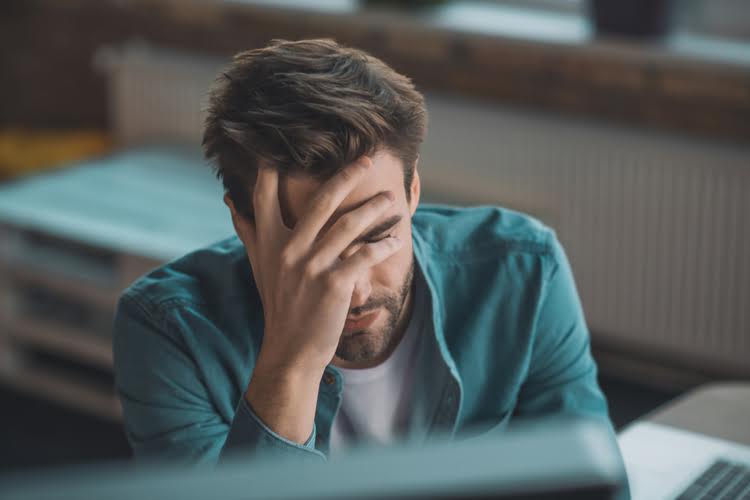Does Alcohol Make Depression Worse? Verve Behavioral Health
For other individuals, the actual symptoms of a depressive disorder can impact and influence AUD development. The lowered inhibitions that are mentioned above can lead a person to make decisions that normally wouldn’t be made. When it’s combined with heightened mood states, displeasing effects can occur. Increased anger might lead a person to pick fights with loved ones, while extreme self-loathing and sadness could result in severe depression symptoms. Since alcohol can cloud an individual’s brain, it can also keep a person from being able to view helpful solutions to their problems.

It takes a lot of courage to be honest with yourself about your feelings and the ways you’ve been managing those feelings. Substance use and alcohol overuse has had a lot of social stigma attached to it as well. Being honest about your use of substances with a kind and compassionate heart is a great start to being ready to address this use going forward. Carmen Chai is a Canadian journalist and award-winning health reporter. Her interests include emerging medical research, exercise, nutrition, mental health, and maternal and pediatric health. She has covered global healthcare issues, including outbreaks of the Ebola and Zika viruses, anti-vaccination movements, and chronic diseases like obesity and Alzheimer’s.
One on one therapy
Substance-induced depression is different from major depressive disorder and, by definition, should improve once a person stops consuming substances (such as alcohol). However, alcohol can make these feelings and other symptoms worse over time, perpetuating the cycle of alcohol consumption and depression. But if you have trouble managing your drinking, become fixated on alcohol, or keep drinking even though it may cause issues, you might have alcohol use disorder. For example, a person with frequent episodes of severe depression may turn to drinking to self-medicate. People who frequently drink are more likely to experience episodes of depression, and they may drink more in an attempt to feel better.
At a 6-month follow-up, patients in the motivational-intervention condition reported a significantly greater reduction in weekly alcohol consumption compared with the psychoeducational group. Those who drink alcohol because they’re unhappy will still feel that way once the effects of alcohol wear off. However, feeling of anxiety return after intoxication fades, often stronger than before. However, alcohol can make the symptoms of depression worsen, which can be detrimental to someone’s mental state. These two variables are tough to break, especially when one is alone.
Antidepressants and alcohol: What’s the concern?
Due to poor coordination and decision-making, people often get themselves into dangerous situations. Over 141,000 people die from alcohol misuse annually, with 385 daily deaths from excessive drinking. In such cases, depression tends to ease over several weeks, and you can return to living drug addiction treatment productively. When depression persists and begins interfering with your daily functioning, it may be a depressive disorder. To be diagnosed with depression, a person must experience symptoms, like the ones below, for at least two weeks and a large part of each day. Fehling recommends that family and friends of heavy drinkers “build a cohesive message” and unite.

Health Conditions
Crystal Raypole has previously worked as a writer and editor for GoodTherapy. Her fields of interest include Asian languages and literature, Japanese translation, cooking, natural sciences, sex positivity, and mental health. In particular, she’s committed to helping decrease stigma around mental health issues.
- Dr. Hoffman is the Co-Founder and Chief Medical Officer of AddictionHelp.com and ensures the website’s medical content and messaging quality.
- Additionally, people who are struggling with stress or trauma may be more likely to turn to alcohol to cope, which can worsen their depression symptoms.
- Choosing to self-medicate with alcohol will only serve to reinforce the negative symptoms of these mental health disorders, contributing greatly to a worsening condition.
- Prolonged disruption of serotonin and dopamine systems can lead to long-term changes in neural pathways, making it increasingly difficult for individuals to recover from depressive states.
It can also aggravate symptoms of pre-existing depression and endanger your health and mental health. However, alleviating depression does not resolve the alcohol use disorder. In some cases, you may receive a dual diagnosis of a major depressive disorder (MDD) and an alcohol use disorder (AUD). This co-occurring disorder isn’t uncommon, but it can be difficult to treat. Alcohol and depression are connected in several ways, and the two often feed off of one another. People may turn to alcohol as a way to cope with mood problems, but drinking alcohol can also contribute to symptoms of depression.
As you’ll see throughout the article, abuse of alcohol and depression share many of the same signs, symptoms, and consequences. If your loved one is struggling with both depression and alcohol, it can feel overwhelming. To overcome these patterns, a person must be ready to change of their own does alcohol make depression worse accord. But if you think they will be receptive, approach the problem with empathy and nonjudgement, and be prepared to offer solutions. If they are ready, help them research their options, and discuss the best ways for you to be supportive.
The Impact on Sleep
When that happens, you’re more likely to feel depressed, particularly if you have a family history of depression. Your doctor will likely conduct a physical exam and a psychological evaluation. These tests help them calculate your risk factors for either condition.
If you still have depression after 4 weeks of not drinking, talk to your doctor. Long-term heavy drinking can also cause permanent changes to the brain, such as problems with understanding, remembering, and thinking logically. Alcohol acts as a depressant through its interaction with the brain’s neurotransmitters, which are chemicals that transmit signals in the brain and nervous system.
Ways to Improve Your Mental Health in 2025
- ” Research has shown and indicated that there does seem to be a two-way relationship occurring between depression and alcohol addiction.
- Understanding the relationship between alcohol abuse and depression is vital for anyone who wants to manage their mental health and well-being.
- Many individuals struggling with depression turn to alcohol as a form of self-medication.
- This is because alcohol can interfere with the way certain medications are metabolized in the body.
- This is because alcohol alters the levels of brain chemicals (neurotransmitters) that impact our feelings and behavior.
Worse still, you’ll probably wake up with a hangover, where you may experience a headache, light sensitivity and dehydration. More severe hangovers may include trembling, nausea or vomiting, and overall body fatigue. None of these physical symptoms contribute to your mental health and positive state of mind. It’s a question many people have asked themselves upon waking up and feeling low after a night of drinking — both physically and mentally. Alcohol can cause or worsen mental illness as a whole because of its effects on the central nervous system, namely, our stress response.
Then, you can take action towards improving your mental health, whatever that may look like for you. Injuries to the body lead to depression because they prevent you from participating in social activities, making money, and having fun. If you stop drinking after a few drinks, the liver will process it out of your body, and you will be sober again. If you continue drinking, however, you will experience stages of intoxication in which brain activity becomes slower. Stages of alcohol intoxication include excitement, confusion, stupor, coma, and death. Also, tell your healthcare professional about any other health conditions you might have and any other medicines you take.
